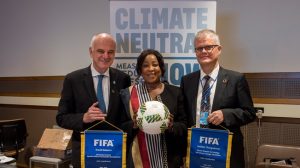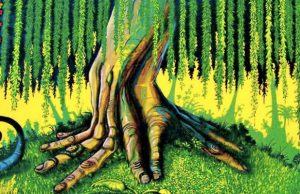Climate change raises important educational challenges, as it is necessary to know about its causes in order to recognize the roots of the problem and know about its consequences. It is necessary to build a realistic perception of climate risks, understand our vulnerabilities and learn how to contribute to find solutions. In that sense, there is a need for education to build a lower carbon culture.
Education is a fundamental human right that fosters liberty and personal autonomy and plays a key role in climate change. It is a catalyst for development. Education is sustainable if it enables people to prepare a critical judgment towards principal environmental concerns, and adopt attitudes and behaviors in this regard.
Under the Paris Agreement, the Parties had recognized the importance of education, training, public awareness, public participation and public access to information with respect to enhancing actions under the Agreement. As a consequence, Parties require developing and implementing educational and awareness programs on climate change and its effects, and facilitate access to information and participation in its study. During COP 22, two initiatives have been launched that I consider especially contributive to this purpose.
Climate Neutral Now
First, the program called “Climate Neutral Now” launched by the United Nations Climate Change Secretariat, and that was informed during a press conference on November 12, 2016. The purpose of this program is to reduce current emissions to the point where we reach climate neutrality by the second half of 21st century. This program has a three-step approach: (i) measure your carbon footprint, (ii) reduce maximum emissions you can, and (iii) offset extra emission investing in projects with UN-certified emission reductions. It is available to governments, corporations and individuals.
Even though, the main purpose of this mechanism is not to educate, I believe that in practice this platform could be useful for such purpose because it provides relevant information in calculate our own emissions, and implement a tool to its solution. Through this climate change credit store everyone can offset its own carbon emissions online.
In addition, through Climate Neutral Now, the Secretary of UNFCCC had signed formal pledges with important organizations. As an example, FIFA had joined this initiative to measure, reduce and compensate the greenhouse gas emissions related to the 2018 FIFA World Cup. People of all social and economic conditions watch this sporting competition so it will globally spread the importance of a carbon neutrality event, allowing people to gradually become aware of climate change.

Traditional Indigenous Knowledge
Second, a side event was held to promote traditional indigenous people´s knowledge as an important mechanism for climate change adaptation on November 8, 2016. The objective was to appreciate and reevaluate traditional knowledge, especially, the holistic land use they have, agriculture and fishing techniques, and use of medicinal plants. From the experience of climate change that indigenous people have accumulated during centuries, they had developed strategies to address this phenomenon which can offer valuable information to scientists in order to find best methods of adaptation.
Education is a lifelong learning process, and it includes not only formal but also non-formal education. In that sense, it is necessary to open the door to recognize and promote strategies for adaptation of indigenous people, and encourage the active participation of indigenous and traditional communities in the discussion of climate change policies. All these will foster a comprehensive knowledge that contributes to global education.

As a conclusion, although greater education mechanisms are needed, these two initiatives are important to educate people, expand awareness of the importance of climate change and encourage them to work on it. Having a climate change credit store to offset your footprint from anywhere in the world, disseminating the importance of climate neutrality through a global event, and promote the transfer of ancestral education of communities; will educate people and keep promise into action.
Resources:
http://ceeindia.org/esdg/Sustainable%20Development%20Begins%20with%20Education.pdf